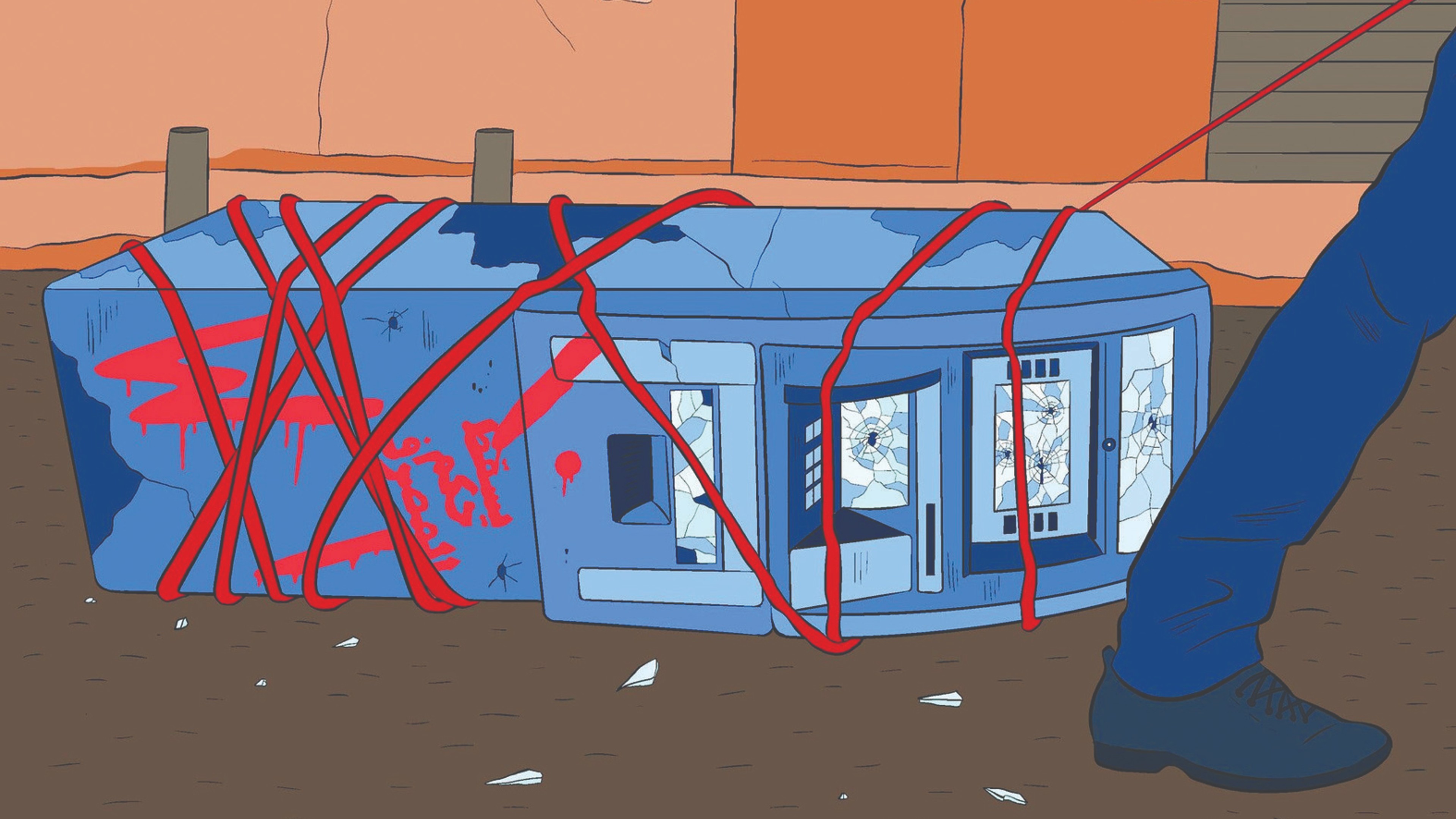Robbing your own bank account for cash
Hafiz was not the first account holder in Lebanon to resort to these tactics; there has been a spate of similar hold-ups at banks across the country since January.

By LINA MOUNZER
Last month a photo of 28-year-old Sali Hafiz went viral. In the image she was standing on a desk, dressed in black with yellow sneakers, a gun — a realistic toy — in one hand and a phone in the other. She was in the middle of robbing a bank. Though, maybe “robbing” isn’t the right word for it: She wanted to make a withdrawal; she was just done asking politely.
Hafiz was not the first account holder in Lebanon to resort to these tactics; there has been a spate of similar hold-ups at banks across the country since January. But in September there was something of a crescendo, with about 12 over the course of the month. And many Lebanese cheered the perpetrators on — sometimes from right outside the banks while the hold-ups were taking place. Lebanon is in the third year of a profound economic crisis. The Lebanese pound has lost over 90 percent of its value, annual inflation in 2021 was over 150 percent, and people are struggling to afford food and electricity. There has been catharsis in seeing citizens challenge the institutions that many feel have humiliated them.
But in recent weeks the cheers have quieted into indifference. The robberies were not the start of an organised fight-back, but another forced adaptation to our new reality. Much as we ask friends and relatives who travel abroad to act as pill couriers because medicines are unaffordable or unavailable, or we navigate pitch-black and potholed roads with nothing but our wits: If we want the savings that have been held hostage for three years, we might have to rob the bank.
In October 2019 a scheme to keep the Lebanese pound pegged to the dollar collapsed. The country’s commercial banks had been offering customers exceptionally high interest rates on their savings accounts, which financed loans to the central bank. But by the late 2010s the only way the central bank could repay those loans plus interest was by borrowing more. A government-sanctioned Ponzi scheme, in effect. When it fell apart, the value of the pound crashed and the banks — citing anti-government protests — closed their doors. While banks were closed to the public, some $6 billion was reportedly “smuggled” out of the country by the well-connected elite. When the public could have access again, a limit was set on what ordinary depositors could withdraw from their own accounts — as little as $200 every two weeks.
Of course, the large creditors who could better afford to shoulder losses should have done so, and the World Bank concluded as much in a report this summer. But ordinary people were made to bear the consequences instead — just as they were one year later, when nobody was held responsible for an explosion in the Port of Beirut that left more than 200 dead and entire neighbourhoods flattened. Evading accountability is one of the few things our notoriously corrupt elite excels at.
Now, to live here is to relearn every day how to do more with less. The state-provided electricity turns the lights on only occasionally, if at all. Medical care is unaffordable. And civil servants, including many judges, have been on open-ended strikes, causing delays in everything from the filing of domestic protection orders to prison releases.
So we try to adapt, because we have no other choice. We run generators and install solar panels. We stand in lines for bread and fuel. We take our children out of school and forgo seeing the doctor or dentist. And now, we rob our banks. Hafiz said that she held up her bank because her sister is dying of cancer and she needs money for the treatment. She said she’d tried everything before she resorted to this last, desperate measure.
Mounzer is a Lebanese writer and translator
The New York Times
Visit news.dtnext.in to explore our interactive epaper!
Download the DT Next app for more exciting features!
Click here for iOS
Click here for Android



